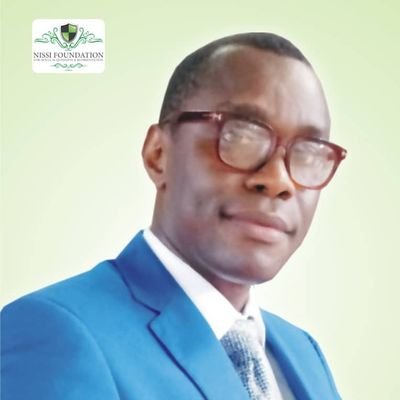“Looking at the regional system of government and how it could address the prevailing challenges currently besetting the country, it becomes crystal clear why the clamour for it has been intense in the last few years. The country has not been rid of cries of secession, cries of marginalization, cries of abandonment, ethnic rivalry to the breaking point of the unity of the country being threatened. The current system of government with the federal government, overwhelmed with the management of a vast and diverse nation, struggles to address local issues effectively.”
Over the past few weeks there have been clamors from different quarters for Nigeria to return to regional government in light of the prevailing issues bedeviling the country’s socio-political landscape. From 1946 until May 5, 1967, Nigeria practiced the regional system of government until it was dismantled by General Gowon, who sought to undermine Ojukwu’s control over the Eastern Region as it prepared to secede following Gowon’s failure to uphold agreements made in Aburi, Ghana.
Gowon restructured Nigeria from a federation of four regions into twelve states, marking a point of no return for regionalism. Successive military regimes, including those of Murtala, Babangida, and Abacha, further fragmented the country into a total of 36 states. While the creation of states aimed to address sub-ethnic groups’ demands for statehood, the pseudo-federal structure concentrated power at the center, failing to empower these new states as the original regions had been.
Frustrated by this situation, many Nigerians have continuously called for a return to true federalism. The late Alex Ekwueme, Vice President under the Shehu Shagari administration, proposed a return to regionalism in his insightful discussions on Nigeria’s constitutional future. Advocates such as Professor Wole Soyinka, the late constitutional expert Professor Ben Nwabueze, and prominent figures like Ayo Adebanjo, Bisi Akande, Femi Falana SAN, and even the current President, Senator Bola Ahmed Tinubu, have all argued for a return to genuine federalism. Despite a growing awareness and repeated calls for change, little progress has been made towards this goal.
Meanwhile, the emergence of a draft bill titled “A Bill for an Act to substitute the annexure to Decree 24 of 1999 with a new governance model for the Federal Republic of Nigeria,” which proposes the “Constitution of the Federal Republic of Nigeria New Governance Model for Nigeria Act 2024,” has stirred excitement and debate among Nigerians about its potential impact.
Looking at the regional system of government and how it could address the prevailing challenges currently besetting the country, it becomes crystal clear why the clamour for it has been intense in the last few years. The country has not been rid of cries of secession, cries of marginalization, cries of abandonment, ethnic rivalry to the breaking point of the unity of the country being threatened. The current system of government with the federal government, overwhelmed with the management of a vast and diverse nation, struggles to address local issues effectively.
Consequently, states and local governments remain heavily reliant on federal allocations, stifling innovation and self-sufficiency. The current system also exacerbates ethnic and regional tensions as ethnic groups vie for control of the central government, believing that their interests can only be protected from the top. This zero-sum game has fueled corruption, nepotism, and political instability.
However, with the regional government coming into play, there would be enhanced local governance as regional governments would be better positioned to address the unique needs of their populations. Local leaders, more attuned to the specific challenges and opportunities within their regions, could implement policies that resonate more with their constituents. This proximity to the grassroots can lead to more effective and responsive governance.
The rate of ethnic tensions would also be significantly reduced as decentralization can mitigate the intense competition for control of the federal government. With more power vested in regional authorities, ethnic groups would feel less marginalized and more in control of their destinies, consequently producing a sense of ownership and inclusivity that could reduce ethnic tensions and regardless of tongue and tribe, in brotherhood, Nigerians would stand.
How good and pleasant it is when God’s people live together in unity! – Psalms 133:1
Meanwhile, I am delighted to inform you that come October, 1, 2024, we at NISSI Safety Management Institute: An Institute famous for Peace Leadership will be celebrating our 20th Anniversary.
To this end is our campaign to spread the education of peace leadership to both the old as young, women and children in various places from corporate organisations, to political organizations, worship centers, educational institutions, markets and communities.
It is in our belief that the more educated the people are in respect to peace leadership, the more peaceful our country will become.
So this is a call-to-action, to hop on our Peace campaign train, to arm yourself, your friends, your colleagues, your employees, your congregation with contemporary peace leadership knowledge that makes for a happier and more fulfilled life, personally and collectively.
Kindly call or send a message on Whatsapp to +2347065828892, to be a beneficiary of this.
Prof. Ofonime Emmanuel Bassey is a Leadership, Conflict, Peace and Security Management Coach with decades of experience in the practice and promotion of Law Enforcement, Peace and Security through the Nigeria Police and the United Nations.
He has served and interacted at the top level management of the Nigeria Police as well as internationally as a United Nation’s Monitor/Mentor in Kosovo, Europe.
Ofonime is a certified United Nation’s Trainer, and currently a Professor of Leadership, Peace and Conflict Resolution with ICOF University, USA/Zambia and a Professor of Peace Education with Charismatic International University, Cameroon.
With his marks well-established in Peace Leadership both in Nigeria and Africa, he is the President, NISSI Safety Management Institute: An Institute famous for Peace Leadership.
Presently, he is spearheading a campaign tagged “The Next Peace Leaders”, a campaign that is billed to run from 2022-2030 with a target of training 37,000 young peace leaders.
For leadership, conflict, peace and security consultations and trainings, reach him via:
Facebook: Dr. O.E Bassey
LinkedIn: Dr. O.E Bassey
X: Dr. O.E Bassey
WhatsApp: +2347065828892
Mail: emmanuelbassey@gmail.com
Share your story or advertise with us: Whatsapp: +2347068606071 Email: info@newspotng.com















